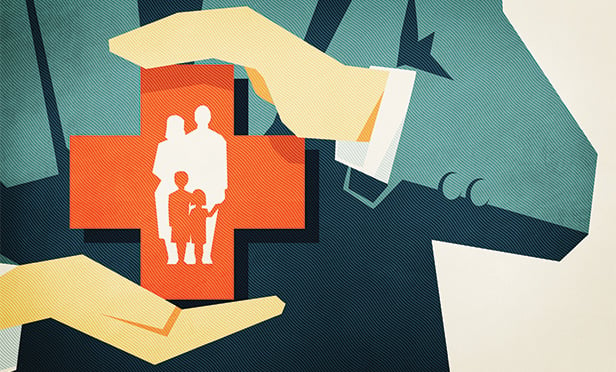 The ACA prohibits people with an offer of affordable employer coverage from purchasing coverage through the ACA marketplace. But what about coverage for family members?
The ACA prohibits people with an offer of affordable employer coverage from purchasing coverage through the ACA marketplace. But what about coverage for family members?
More than five million American workers face a Catch-22 situation when trying to provide health insurance for their families. The so-called "family glitch" occurs when their employer offers affordable coverage for them but not for their dependents, making them ineligible for financial assistance for marketplace coverage.
The Affordable Care Act prohibits people with an offer of affordable employer coverage from purchasing subsidized coverage through the ACA marketplace. Under current rules, the affordability of employer coverage is based on what it would cost to cover only workers and not their families.
Recommended For You
Worker-only coverage with an out-of-pocket premium up to 9.83% of the worker's household income is considered affordable, even if the additional cost of covering their dependents would push them above that threshold. President Biden hinted about a potential administrative fix to address the glitch in a recent executive order.
A KFF analysis offers a demographic profile of those currently affected by the glitch:
- The vast majority (85%) are currently enrolled in employer-sponsored coverage and likely spending far more for their health insurance than people with similar incomes with subsidized coverage through the marketplace. Nearly a half million are uninsured.
- Most (54%) are children and, among adults, most (59%) are women.
- Texas (671,000), California (593,000), Florida (269,000) and Georgia (206,000) have the largest number of people affected by the glitch.
The exact number of people who would benefit from a fix to the family glitch will depend in part on how such a policy change is made and other potential changes to the ACA. Because Congress has temporarily expanded ACA subsidies for people with incomes above 400% of poverty and increased the amount of assistance available to nearly all Marketplace shoppers, nearly everyone currently in the family glitch could become eligible for Marketplace subsidies with a fix.
However, even if the family glitch is addressed, when the American Rescue Plan Act's temporary subsidies expire, people who fall into the family glitch and have incomes over 400% of poverty would no longer be eligible for financial assistance on the exchange because of their incomes.
"A fix to the family glitch would increase government spending, with the amount depending how many of those who fall in the glitch choose to enroll through the Marketplaces," the analysis concluded. "A Congressional Budget Office score of a bill that passed in the U.S. House of Representatives estimates a fix to the family glitch would increase federal spending by $45 billion over 10 years. This estimate does not include the temporarily expanded subsidies under ARPA."
© Touchpoint Markets, All Rights Reserved. Request academic re-use from www.copyright.com. All other uses, submit a request to [email protected]. For more inforrmation visit Asset & Logo Licensing.







